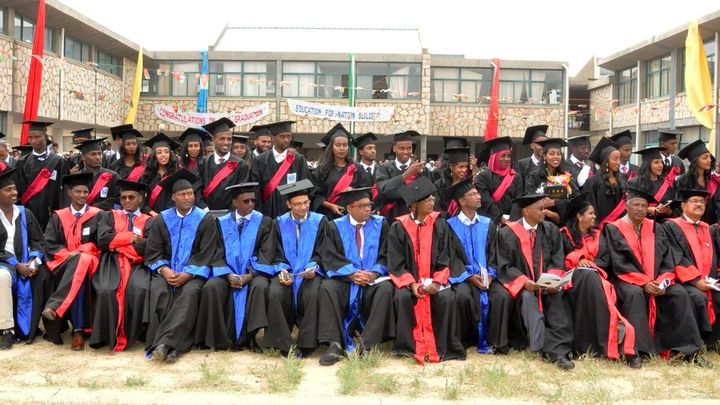
Braille Displays for Students at Adi-Keih College
Donation protected
In the spirit of the holidays please consider donating what you can to our fundraiser to purchase 10 braille displays for students with disabilities at Adi-Keih College in Eritrea.
Item: Orbit Reader 20 - Braille Display
Quantity: 10
Price for one: $649
The following is a proposal written by our colleagues at the disabilities office at Adi-Keih college:
"Contrary to some misconceptions that persons with disabilities are not and cannot be independent, self-sufficient and/or productive members of their community, throughout history, persons with disabilities have contributed greatly to society and many of them have distinguished themselves in their respective fields. In that respect, education for persons with disabilities is not only a human right but also an instrument through which they can participate in society, rise above poverty and reach their full potential.
In fact, a cyclic relationship exists among disability, education and poverty. The fact that children with disabilities are either marginalized from educational opportunities or “have lower educational attainment than other children” means that they are “less likely to acquire the human capital” that will allow them to rise above poverty. The only way to overcome this problem is through the provision of accessible and inclusive education.
However, the educational situation of people with disabilities in the world, but especially in developing states, is dire. Due to lack of access to education and lack of the necessary accommodations when there is access, “the majority of persons with disabilities live in conditions of poverty”. It goes without saying that manual work is out of the question for most people with disabilities, thus making education their only path out from a life of poverty and/or dependency.
In Eritrea, inclusive education is, in the words of Ambassador Semere Rousom, former Minister of Education, “part and parcel of the overall policy of social justice”. However, as the Convention on the Rights of Persons with Disabilities and Optional Protocol notes, despite “various instruments and undertakings, persons with disabilities continue to face barriers”.
In Eritrea, there are three schools for students with disabilities (SWD): two primary schools for the deaf, one in Asmara and one in Keren, and one primary school for blind students in Asmara. The students from the three schools join mainstream schools beginning from junior high school.
The transition of SWD into postsecondary education poses several problems. Once in college, students with disabilities are faced with challenges and obstacles peculiar to them on top of those faced by the other students, preventing them from reaching their full potential. This has led to a decline in their academic performance and, in worst case scenarios, withdrawals, dropping out, and dismissals.
In developed countries, such challenges encountered in higher education don’t necessarily have to result in setbacks because of the “many resources, technologies and accommodations available at countless schools”. Such services that address the problems faced by SWD, allowing them to focus on their studies, are provided by what are typically known as Disability Services Offices (DSO).
One of the main functions of a DSO is to introduce and promote Assistive Technology (AT). AT is “any item, piece of equipment, software program, or product system that is used to increase, maintain, or improve the functional capabilities of persons with disabilities”. AT is especially significant to Blind and Visually Impaired Students (BVIS). In fact, AT can “compensate for the vision impairment of students” , “allow students to participate in education”, provide access to information and knowledge, help them “adjust to academic demands of university life” and enhance the academic performance of students. Assistive technology can serve as a “great equalizer”.
It is important to remember that inclusive education isn’t only about ascertaining that students with disabilities have access to education. Colleges need to remember that inclusive education is about “understanding that ALL learners are different, and it is the task of the education system to develop responses to this diversity.” Hence, CBSS has to ascertain that it is inclusive and accessible and has the necessary AT to ensure both.
Currently one embosser is operating and the BVIS are receiving handouts and other study material embossed (printed) in Braille. However, this poses two problems. First, the embosser is operated through volunteer members, putting its longevity in question. There needs to be permanent staff members working as embosser operators. Second, embossers are outdated AT and the production of Braille paper is halting throughout the world. The College has limited Braille paper. This highlights the need for the College to acquire alternative AT.
Education is a human right. For persons with disabilities, it is also their lifeline. Denying people with disabilities their right to inclusive education will also deprive the nation of capable individuals who can contribute to development. Hence, ensuring accessible and inclusive education should be a national priority."
If you would like to read the full proposal please reach out to me and I will be happy to share it with you!
Organizer
Heaven Tesfamariam-Bereketeab
Organizer
Minneapolis, MN